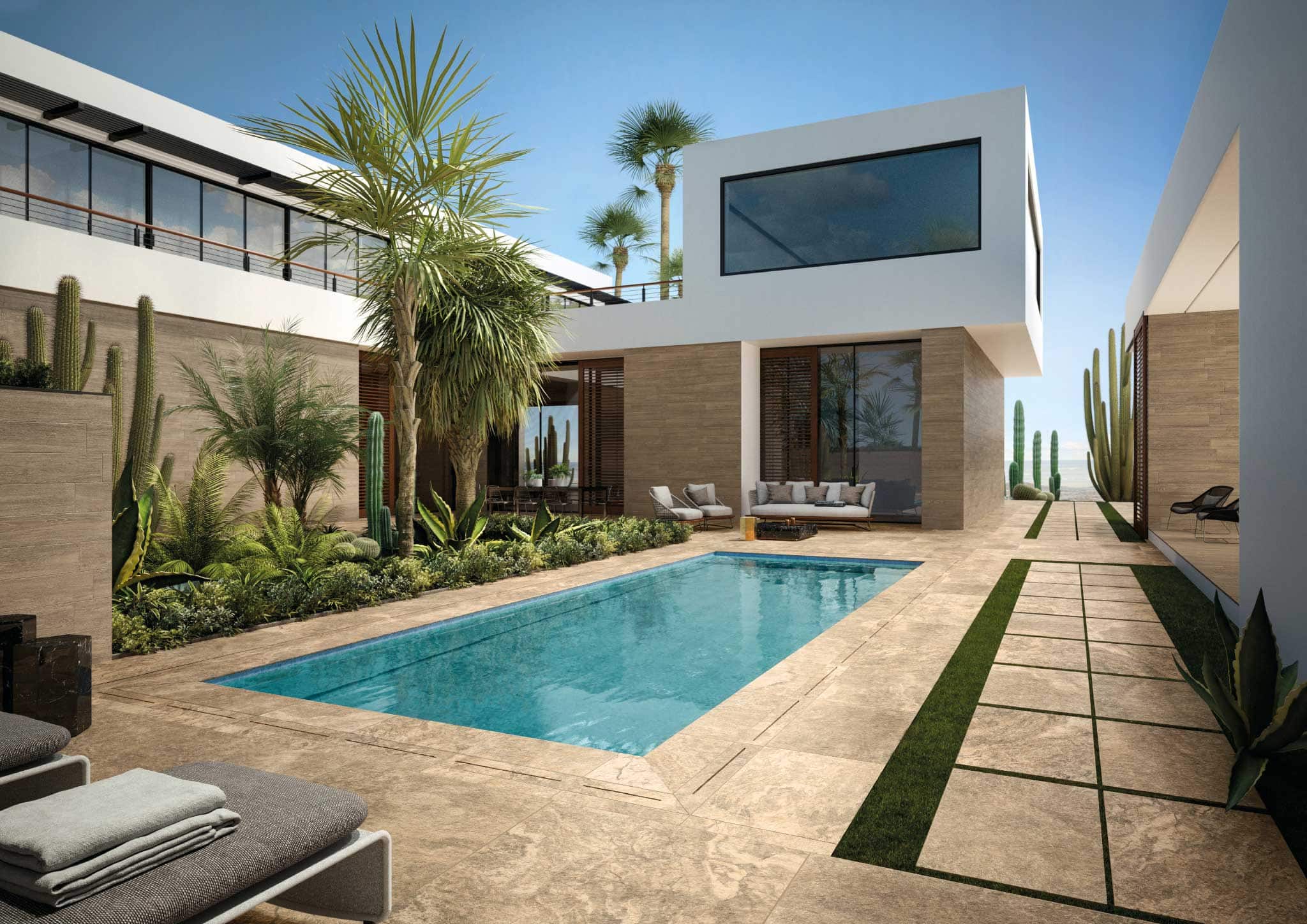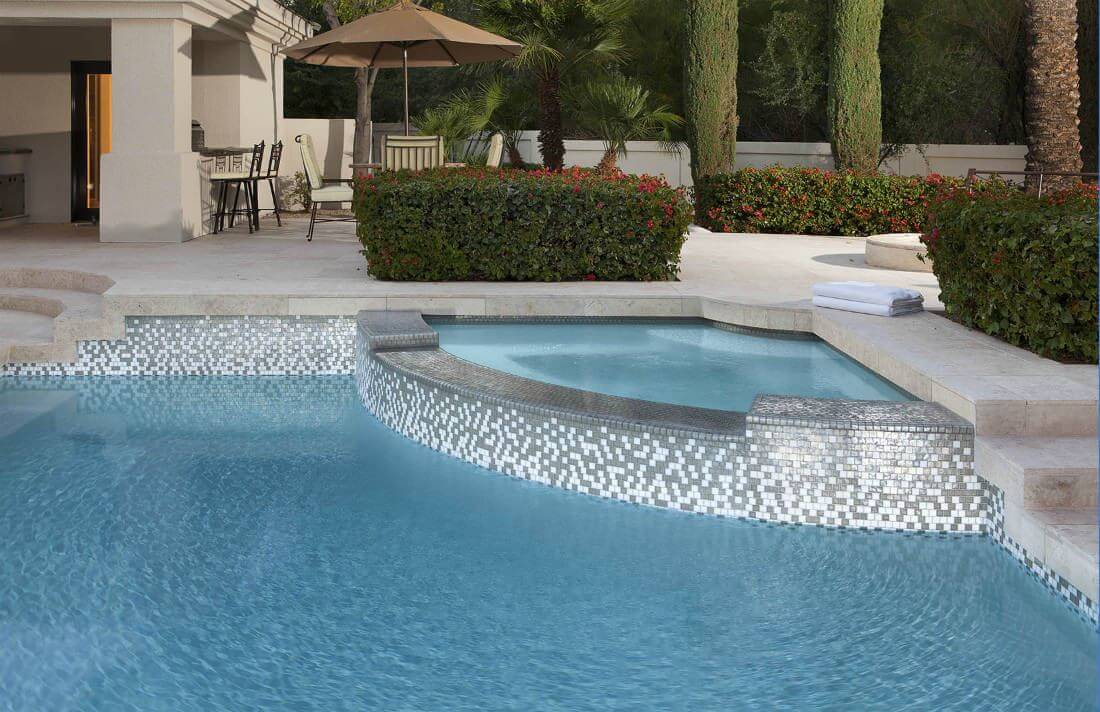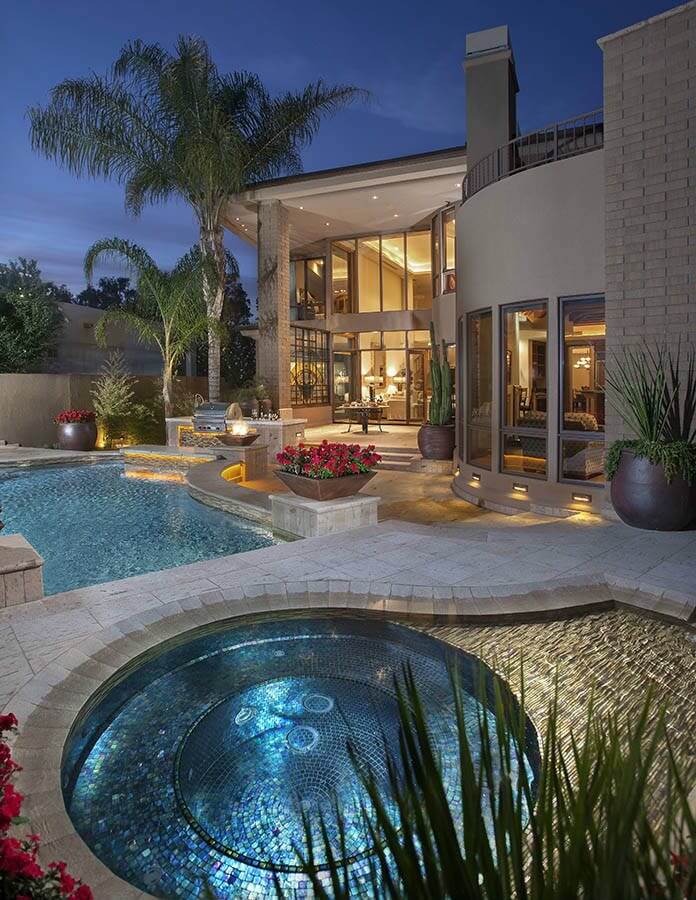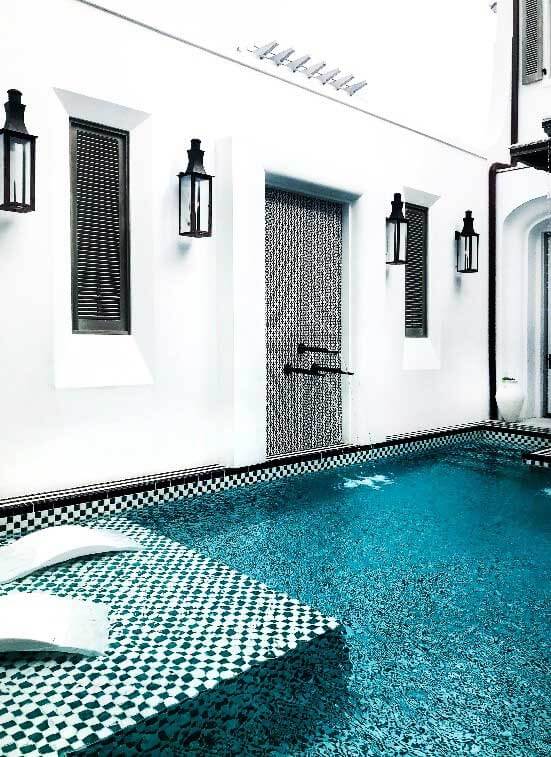Applications

Advantages

- Time-trusted waterproof system
- Long-lasting durability protects your pool year-round
- Endless color and design options to create a one-of-a-kind pool
- Resistant to mold, mildew, and bacteria to help keep your pool clean and healthy
- Slip-resistant options ideal for wet areas
- Fade resistant materials keep colors vibrant even with sun and chemical exposure
Room Type
Design a healthy, relaxing recreational space to enjoy for years to come.
Tile is a smart addition to swimming pool construction, both for beautiful style options and extended durability. Ceramic tile is a time-honored, trusted material for use in areas requiring a waterproof assembly. If installed and maintained properly, ceramic tile can last much longer than other pool finishes, saving time and money to give you more enjoyable years poolside.
Unlike vinyl pool liners, ceramic tile is resistant to punctures and scratches. Vinyl liners last an average of seven years and concrete pools need to be resurfaced about every 10 years. Outdoor pools with a vinyl liner can show noticeable fading from sunlight exposure and pool chemical use. Fading in a vinyl pool liner may also indicate the pool liner is failing. Ceramic tile is resistant to fading, so even after years of sunlight and pool chemicals, your tile will look brand new.
Common types of tiles for pools and pool surrounds include porcelain, quarry, mosaic, and glass tile. Mosaics tiles are small pieces of tile that come together to form an image or pattern and are especially popular for creating designs in a pool plan. Glass tile is another popular option for swimming pools because the sunlight and/or pool lights reflect the glass, which allows the colors of the tiles to seemingly dance across the water. Unique pool designs can be created using any of these options, which are available in many different styles, shapes, and colors.
Hypoallergenic and easy to clean, ceramic tile’s inert composition makes it resistant to mold, mildew, and bacteria. The composition of vinyl liners provides organic material (food) that mold, mildew, and bacteria need to grow. Concrete pools can also harbor mold and bacteria because these irritants can grow in the small pores in the concrete. Adding tile to your pool provides a sanitary surface that can save you from the extra maintenance time and costs associated with other materials.
The area around the pool is important to consider during pool installation. Ceramic tile offers slip resistant options, ideal for wet areas. Adding ceramic tile around your pool is also a way to make a design statement whether you use a tile that extends your pool design, is a continuation of your tile used in other spaces, or is a style that bridges your indoor-outdoor space.
With unlimited possibilities, ceramic tile can transform any pool and pool surround into a beautiful space to be enjoyed for generations.

Download #OutsideTheBox: Your Tile Buying Guide…and get started now!


